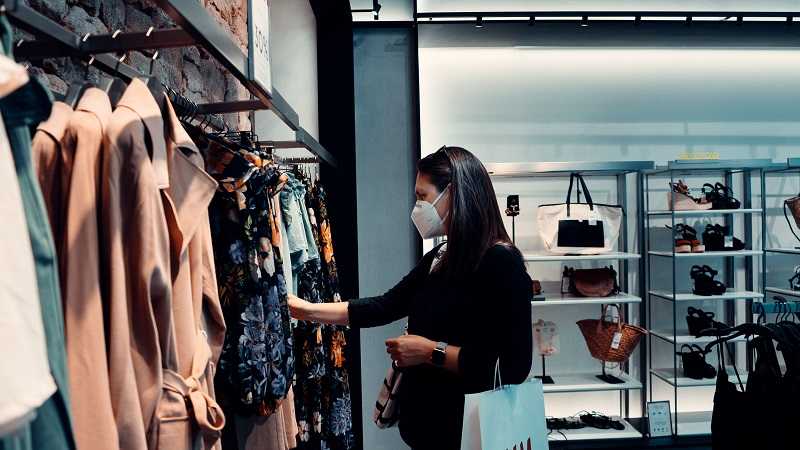 Do you feel like your face mask is causing you to break out? You’re not alone. Though we have normalized face masks as part of our daily outfit, we may have also become more aware of our skin. Face masks help to provide protection and further spread of the COVID-19 virus; however, they can also damage our skin leading to breakouts and dry, irritated skin. Read more to learn about how to deal with maskne – the new term for mask-related breakouts.
Do you feel like your face mask is causing you to break out? You’re not alone. Though we have normalized face masks as part of our daily outfit, we may have also become more aware of our skin. Face masks help to provide protection and further spread of the COVID-19 virus; however, they can also damage our skin leading to breakouts and dry, irritated skin. Read more to learn about how to deal with maskne – the new term for mask-related breakouts.
What causes maskne and other mask-related skin problems?
Acne often develops from pores clogged by oil, dead skin cells, makeup, dirt, debris, or bacteria. These clogged pores can lead to blackheads, whiteheads, or pimples that can vary in size and type.
We would normally combat acne by adjusting our skincare routines with facial masks or creams, over-the-counter treatments, and gentle washes. However, the constant use of a face mask can interfere with this process as it provides the perfect environment for harmful bacteria to grow and become trapped into your skin causing breakouts around the nose, cheek, mouth, and chin area.
Additionally, face masks may act as a trigger and cause flare-ups for those diagnosed with rosacea, eczema, or psoriasis. Not only can your skin be affected by a face mask, but also your lips! Your lips can often become dry, chapped, or irritated from your mask so you may need to take extra care to prevent irritation.
Protection and prevention
Even if you are not acne-prone, everyone should practice these mask hygiene tips to protect against and prevent maskne.
The CDC recommends wearing cloth masks. The material of your mask affects how well it can protect you from the virus as well as how well you can breathe through it. The best choice for your skin is a tightly woven natural fiber such as cotton as it is effective while still being gentle on your skin providing an excellent balance of protection and comfort.
- Avoid wearing makeup or applying harsh products such as retinol underneath your mask as this can clog pores or cause your skin to react due to increased sensitivity. Be mindful of how your skin is reacting as you may need to adjust how often or how much to use.
- Choose a mask that allows you and your skin to breathe while still offering adequate protection. Remember your mask should fit snugly over your mouth and nose, but also comfortably so it doesn’t irritate your skin. A poorly fitting mask can cause you to transfer germs to your mask and face and is less protective against the virus.
- Do not reuse masks. Dirt and oil from your skin plus bacteria from your mouth and nose can build up on your masks. Keep a rotation of masks on hand and wash them after each use. Always wear a clean mask on a clean face.
- Protect your ears from becoming irritated by elastic straps. Find masks with different types of ties and loops so that you can prevent behind-the-ear soreness, cuts, or burns from friction.
- Take care of your lips by applying a lip balm or petroleum jelly to them throughout the day and at night to prevent dryness and chapping.
- Wash your face frequently to keep dirt and oil from becoming trapped under the mask or on your skin. Use a gentle cleanser that has no added fragrance and is oil-free. Remember to apply a moisturizer afterward to keep your skin hydrated and act as a protective layer against your mask.
If your skin isn’t responding to at-home treatments, you should schedule an appointment as many offices are now offering virtual visits. Spreading redness or drainage could be signs of an infection. If you experience this, please seek immediate medical attention.
For more information on how to combat maskne and other mask-related conditions or to schedule an appointment, please contact Dr. K’s Med Spa today.

